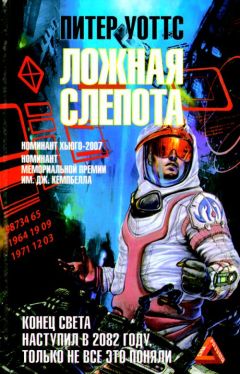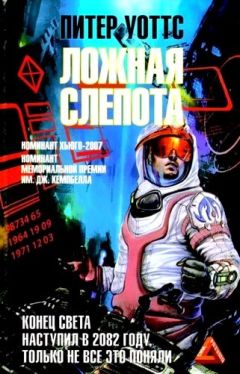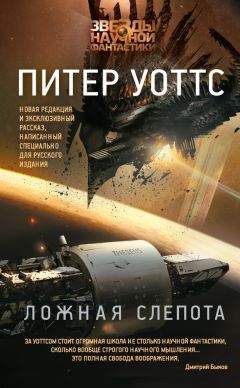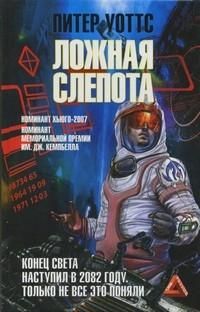143
Holzscheiter, M. I. L. et al. 1996. Production and trapping of antimatter for space propulsion applications. American Institute of Aeronautics and Astronautics-1996-2786 ASME, SAE, and ASEE, Joint Propulsion Conference and Exhibit, 32nd, Lake Buena Vista, FL, July 1–3.
http://www.engr.psu.edu/antimatter/Papers/NASA_anti.pdf
Blacstone, E., et al. 2005. H 2 S Induces a Suspended Animation-Like State in Mice. Science 308: 518.
На момент написания книги данные еще не были опубликованы.
Bails, J. 2005. Pitt scientists resurrect hope of cheating death. Pittburgh Tribune-Review, June 29. Available online at http://www.pittsburghlive.com/x/tribune-review/trib/regional/s_348517.html
Oasa, Y. et al. 1999. A deep near infrared survey of the chamacleon i dark cloud core. Astrophysical Journal 526: 336–343.
Normile, D. 2001. Cosmic misfits elude star-formation theories. Science 291: 1680.
Lucas, P. W., and P. F. Roche. 2000. A population of very young brown dwarfs and free-floating planets in Orion. Monthly Notices of the Roval Astronomical Society 314: 858–864.
Najita, J. R., G. P. Tiede, and J. S. Carr. 2000. From stars to superplanets: The low mass initial mass function in the young cluster 1С 348. Astrophysical Journal 541 (Oct. 0:977-1003.
Matthews, Jaymie. 2005. Личная беседа. (Мэтьюз, Джейми — профессор физики и астрономии университета Британской Колумбии (Ванкувер, Канада), руководитель проекта MOST (орбитальная обсерватория, нацеленная на изучение незначительных колебаний светимости)).
Liu, W., and Schultz, D. R. 1999. Jovian x-ray aurora and energetic oxvgen ion precipitation. Astrophysical Journal 526:538–543.
Chen, P. V. 2001. Magnetic field on Jupiter. The Physics fact book, http://hypertextbook.com/facts
Osorio, M. R. Z. et al. 2000. Discovery of Young, Isolated Planetary Mass Objects in the X֠Orionis Star Cluster. Science 290: 103–106.
Lemley, B. 2002. Nuclear Planet. Discover 23(8).
http://www.nuclearplanet.com/
Dulk, G. A. et al. 1997. Search for Cyclotron-maser Radio Emission from Extrasolar Planets. Abstracts of the 29th Annual Meeting of the Division for Planetary Sciences of the American Astronomical Society, July 28-August 1, 1997, Cambridge, Massachusetts.
Marlcy, M. et al. 1997. Model Visible and Near-infrared Spectra of Extrasolar Giant Planets. Abstracts of the 29th An mal Meeting of the Division for Planetary Sciences of the American Astronomical Society, July 28-August 1, 1997, Cambridge, Massachusetts.
Boss, A. 2001. Formation of Planetary-Mass Objects by Protostellar Collapse and Fragmentation. Astrophysics Journal 551: L167.
Low, C, and D. Lynden-Bell. 1976. The minimum Jeans nass or when fragmentation must stop. Mon. Not. R. Astron. Soc. 176: 367.
Jayawardhana, R. 2004. Unraveling Brown Dwarf Origins. Science 303: 322–323.
Fegley, В., and K. Lodders. 1996. Atmospheric Chemstry of the Brown Dwarf Gliese 229B: Thermochemical Equiibrium Predictions. Astrophys. J. 472: L37.
Lodders, K. 2004. Brown Dwarfs-Faint at Heart, Rich in Chemistry. Science 303: 323–324.
Adam Burgasser, 2002. June 1 edition of the Astrophysics Journal Letters.
Reid, I. N. 2002 Failed stars or overadhetving planets? Science 296: 2154–2155.
Gizis, J. E. 2001. Brown dwarfs (enhanced review). Online article supplementing Science 294: 801.
Clarke. S. 2003. Milky Way's nearest neighbour revealed. NewSdentist.com News Service, 04/11/03.
Basri, G. 2000. Observations of brown dwarfs. Annu. Rev. Astron. Astrophys 38:485–519.
Tamura, M. et al. 1998. Isolated and Companion Young Brown Dwarfs in the Taurus and Chamaeleon Molecular Clouds. Science 282: 1095 1097.
Berger, E. 2001. Discovery of radio emission from the brown dwarf LP944 20. Nature 410: 338–340.
Anonymous, 2000. A brown dwarf solar flare. [email protected], http://science.nasa.gov/headlines/y2000/ast12jul_1m.htm
Следует заметить, что 200 °Cr105 никоим образом не комета: его поперечник составляет приблизительно 235 км, и объект в настоящий момент считается третьим по удаленности от Солнца телом нашей Солнечной системы.
Schilling, G. 2001. Comet's course hints at mystery planet. Science 292: 33.
Джин Родденберри (1921–1991) — американский сценарист и продюсер, создатель телесериала «Звездный путь», населенного преимущественно «гуманоидными инопланетянами с шишковатыми лбами».
Змеехвостки, или офиуры — иглокожие, близкие родственники морских звезд.
Evclyne Kohler, E. et al. 2002. Hearing Sounds, Understanding Actions: Action Representation in Mirror Neurons. Science 297: 846–848.
Rizzolatti, G., and Arbib, M. A. 1998. Language Within Our Grasp. Trends in Neuroscience 21(5): 188-94.
Hauser, M. D., N. Chomsky, and W. T. Fitch. 2002. The faculty of language: what is it, who has it, and how did it evolve? Science 298: 1569–1579.
Miller. G. 2005. Reflecting on Another's Mind. Science 308: 945-947
Pfeifler, Т., S. Schuster, and S. Bonhocffer. 2001. Cooperation and Competition in the Evolution of ATP-Producing Pathways Science 20 292: 504–507.
McMahon, R. J. 2003. Chemical Reactions Involving Quantum Tunneling. Science 299: 833–834.
Zuev, P. S. et al. 2003. Carbon Tunneling from a Single Quantum State. Science 299: 867–870.
Darwin, Charlie «Chuckles». 1859. The Origin of Species by Means of Natural Selection. Penguin Classics Edition, reprinted 1968. Originally published by John Murray, London. (Дарвин Ч. «Происхождение видов путем естественного отбора, или Сохранение благоприятных рас в борьбе за жизнь» (последнее издание М.: Наука, 1991).
Cho, A. 2004. Life's Patterns: No Need to Spell It Out? Science 303: 782–783.
Cohen, J, and Stewart, S. 2005. Where are the dolphins? Nature 409: 1119–1122.
Reilly, J. J. 1995. After Darwin. First Things. June/July. Статья доступна в Интернете по адресу: http://pages.prodigy.net/aesir/darwin.htm
Devlin, К. 2004. Cracking the da Vinci Code. Discover 25(6): 64–69.
Snir, Y., and Kamien, R. D. 2005. Entropically Driven Helix Formation. Science 307: 1067.




